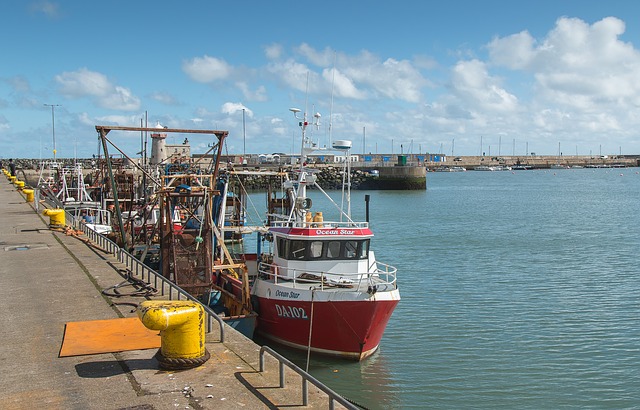Like The Water? The Maritime Industry Needs Women!

Equality is worth fighting for. Women have been fighting for the right to have the same opportunities as men for a long time. Society has made incredible strides. There are women politicians, women lawyers, women army generals; it seems that there are almost no commercial or political areas that women haven’t penetrated. Except the maritime industry.
Seafarers are almost exclusively male. It’s estimated that only 2% worldwide are women. The issue is so critical that the International Maritime Organization (IMO) has announced that the 2019 theme for World Maritime Day 2019 is women empowerment. Even some governments are becoming involved.
Britain’s International Labour Office plans to hold a meeting discussing women seafarers and the unique challenges they face.
“It’s a hidden industry and still seen as a man’s world,” Susan Cloggie-Holden, the female champion for the Royal Fleet Auxiliary (RFA) said. “We’ll start to see little wins quickly, but big changes will take up to 15 years.”
Every stage in a ship’s lifecycle is likely to be managed by men. Looking for a boat mechanic? It’s probably going to be a man. Interested in speaking with a shipbuilder? It’s the same story.
Why are Women Vital?
The shipping industry needs to embrace women because it’s the only way that it can move forward. Diversity isn’t desirable simply because it’s fair, it’s also a way to introduce new ideas and encourage innovation.
Women represent slightly more than half of the human beings on earth. Denying their voice means ignoring a critical part of the market.
“As I am very interested in the paradigm we are currently in, with new technical developments and rapid digitalization… it’s obvious to me that the young women are bringing in the new knowledge that we need to make ourselves essential for the future, such as 3D printing, blockchain, remote controlled management of vessel and so on,” industry Lena Göthberg said.
“So, right now, I think the biggest challenge is that there are not enough women in the shipping industry…”
It’s estimated that the maritime and marine industry is about to be hit with a severe labor shortage problem. There will be a need for 147,500 workers as current employees retire and age out of the industry.
That’s one of the main reasons why market leaders are putting so much energy into recruiting women. They need fresh talent.

What Needs to Happen
Shipping, seafaring, and marine activities are great jobs. They often pay high salaries and provide employee benefits. Automation has barely touched it and the demand for skilled seafarers continues to rise.
Women often don’t know about the benefits. There’s a lack of awareness surrounding maritime careers. Higher education companies can help. If schools taught women about the opportunities available in the industry, they could help drive diversity.
Everyone associated with the field needs to do their part to dispel the myth that jobs associated with boating and shipping are reserved for men. Women candidates might be turned off both by the lack of female role models and the strong sense of there being a “boys’ club.”
To combat this, companies can focus on reaching out to qualified women.
“It makes me proud to work in a company that gives targeted support to young women in their careers and enables me to pursue my dream job, looking forward to my new role as captain… and aware of the great responsibility,” Nicole Langosch, the first woman captain in the AIDA fleet, said.
Societal and social pressures are hard to ignore. Women might shy away from jobs at sea because they don’t want to leave their family for an extended period of time. Men are often expected to be the main breadwinners while women shoulder more childrearing responsibilities. The transition can be made smoother if companies offer generous maternal and paternal benefits.
The Answer Is . . .
There’s no easy answer. It’s possible that women will always be underrepresented in maritime careers. However, even if women in general aren’t interested in the roles, the disparity shouldn’t be so great. 98% of seafarers worldwide are men. There’s almost no other job on earth with such stark discrepancies.
Modern working women have it easier than ever before. The glass ceiling is crumbling around them. Women aren’t actively being kept out of maritime careers, the current infrastructure just doesn’t prioritize them. They don’t have the industry experience or even the desire to have it. That’s because maritime careers aren’t as well-known as others.
To alter this trend, companies need to deliberately reach out to women.

